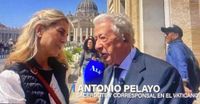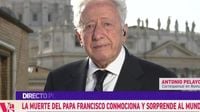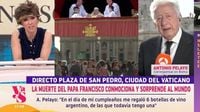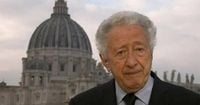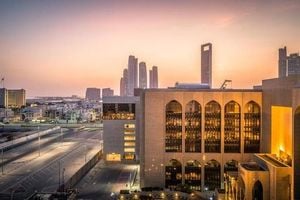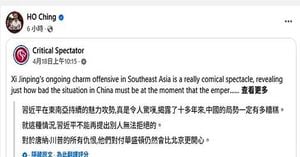Pope Francis passed away on Monday, April 21, 2025, at the age of 88, following a stroke that led to a coma and irreversible cardiocirculatory failure. The Vatican confirmed the news, which sent shockwaves around the globe, as people reflected on the legacy of the Argentine pontiff who had a profound impact on the Catholic Church and the world.
Antonio Pelayo, a veteran correspondent for Antena 3 in the Vatican, was visibly emotional during a live broadcast as he recounted his personal relationship with the late Pope. "It has been a personal loss," Pelayo said, struggling to hold back tears. He reminisced about the times he spent with Pope Francis, including a memorable birthday gift of six bottles of Argentinian wine, of which he still has one remaining. "I feel personally depressed because for me, it’s a personal loss," he admitted, touching the hearts of viewers and his host, Sonsoles Ónega.
Pope Francis had been hospitalized at the Gemelli Hospital in Rome for 38 days due to severe respiratory problems, which included acute respiratory failure from microbiotic bilateral pneumonia, multiple bronchitis, hypertension, and diabetes. He was discharged on March 23, 2025, but his health had been declining for months. The Vatican noted that his death was confirmed through an electrocardiogram, with the official statement declaring, "I declare that the causes of death according to my science and conscience are the indicated ones."
In an interview in St. Peter's Square, Pelayo, who has lived in Rome for 38 years, discussed the significant changes Pope Francis made within the Church, particularly regarding the role of women. He expressed admiration for the Pope's emphasis on fraternity and his ability to connect with people, stating, "He sought points of connection with everyone he interacted with, believing we are all brothers because we are all children of God, and that is something no pope has been able to convey before."
As the world mourns the loss of Pope Francis, many are left wondering about his legacy and the future of the papacy. Pelayo believes that Cardinal Pietro Parolin, the current Secretary of State, is the best-positioned candidate to succeed the late pontiff. He noted that discussions among cardinals regarding the succession have likely been taking place, although he emphasized that such meetings are normal and should not be misconstrued as conspiratorial.
"A conclave is a very important matter for the Church, and it is not surprising that its participants meet and discuss it without falling into the trap of intrigue and pressure groups," Pelayo explained. He also highlighted that the letter of resignation Pope Francis reportedly delivered to the Camarlengo in 2013 is not unprecedented, as other popes, including Pius XII and Paul VI, have done the same to ensure continuity in the event of their passing.
The passing of Pope Francis comes just before a significant Holy Week for the Church, which was expected to be different given his health challenges. Pelayo had previously mentioned a sense of calm in the Vatican, mixed with concern, as the Pope's recovery seemed to be progressing. However, he also acknowledged that the institution has weathered many storms over its two-thousand-year history and would continue to adapt to new circumstances.
In his final days, Pope Francis was often seen with nasal cannulas due to his breathing difficulties, and his public appearances became increasingly rare. Despite this, Pelayo described him as having a strong and optimistic character, accepting that whatever God willed would happen. "He had always said that he kept his bags packed, ready for whatever came next," Pelayo recalled.
Reflecting on the impact of Pope Francis, Pelayo stated, "I cannot say that I lost a friend; I lost a father to me, both as the Holy Father and as a father figure." His heartfelt comments resonated deeply, highlighting the personal connections the Pope fostered with those around him.
As the Catholic community and the world grapple with the news of Pope Francis's death, the focus now shifts to the future of the papacy and the potential candidates who may step into the role. Pelayo's insights and emotional reflections serve as a reminder of the profound influence Pope Francis had on countless lives, both within the Church and beyond.
In a world often divided, Pope Francis's message of unity and fraternity stands out as a beacon of hope. His commitment to social justice, care for the environment, and the inclusion of marginalized voices will be remembered as key aspects of his papacy. As the Church prepares for the next chapter, many will look to his legacy for guidance in navigating the challenges ahead.
